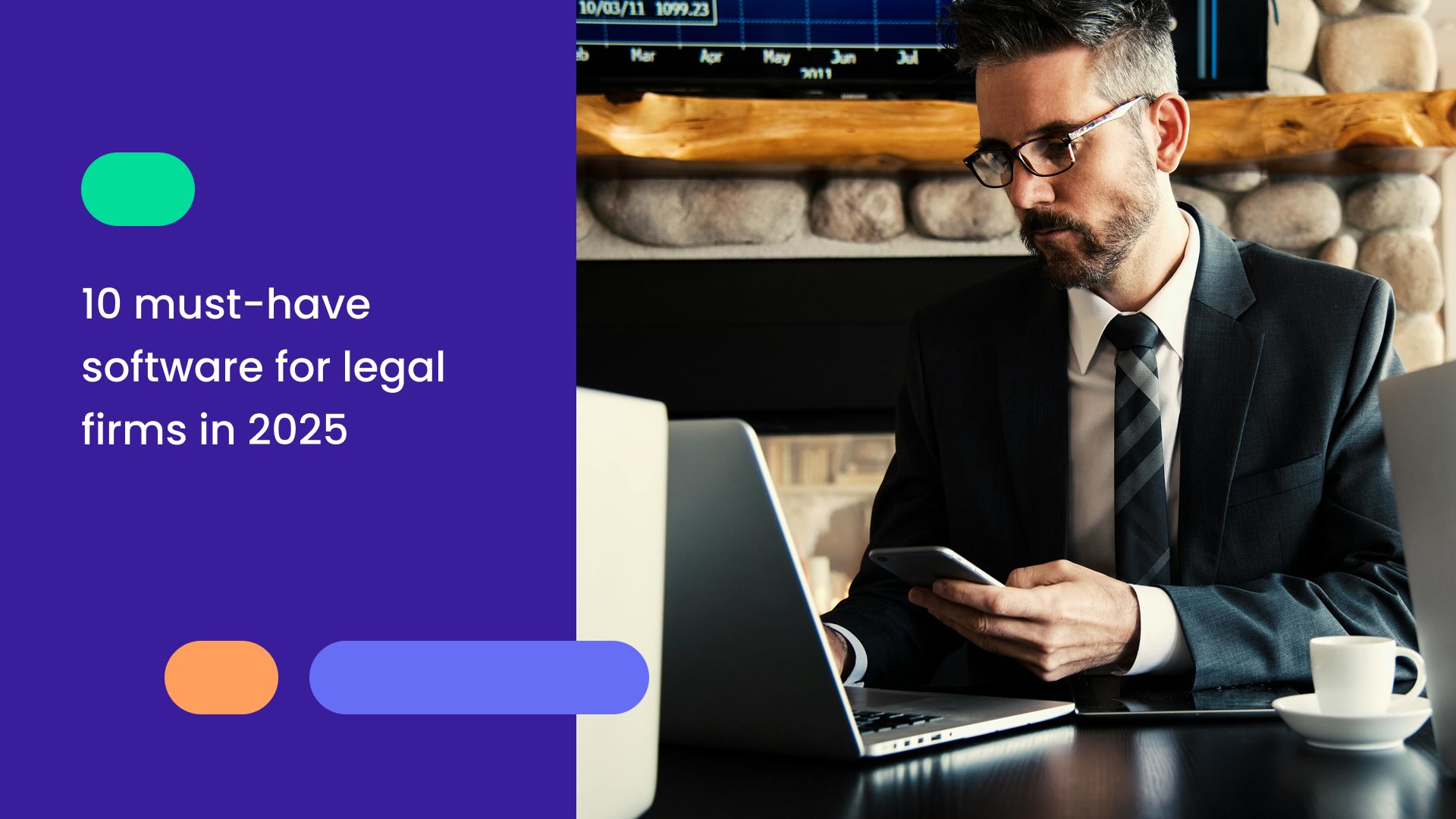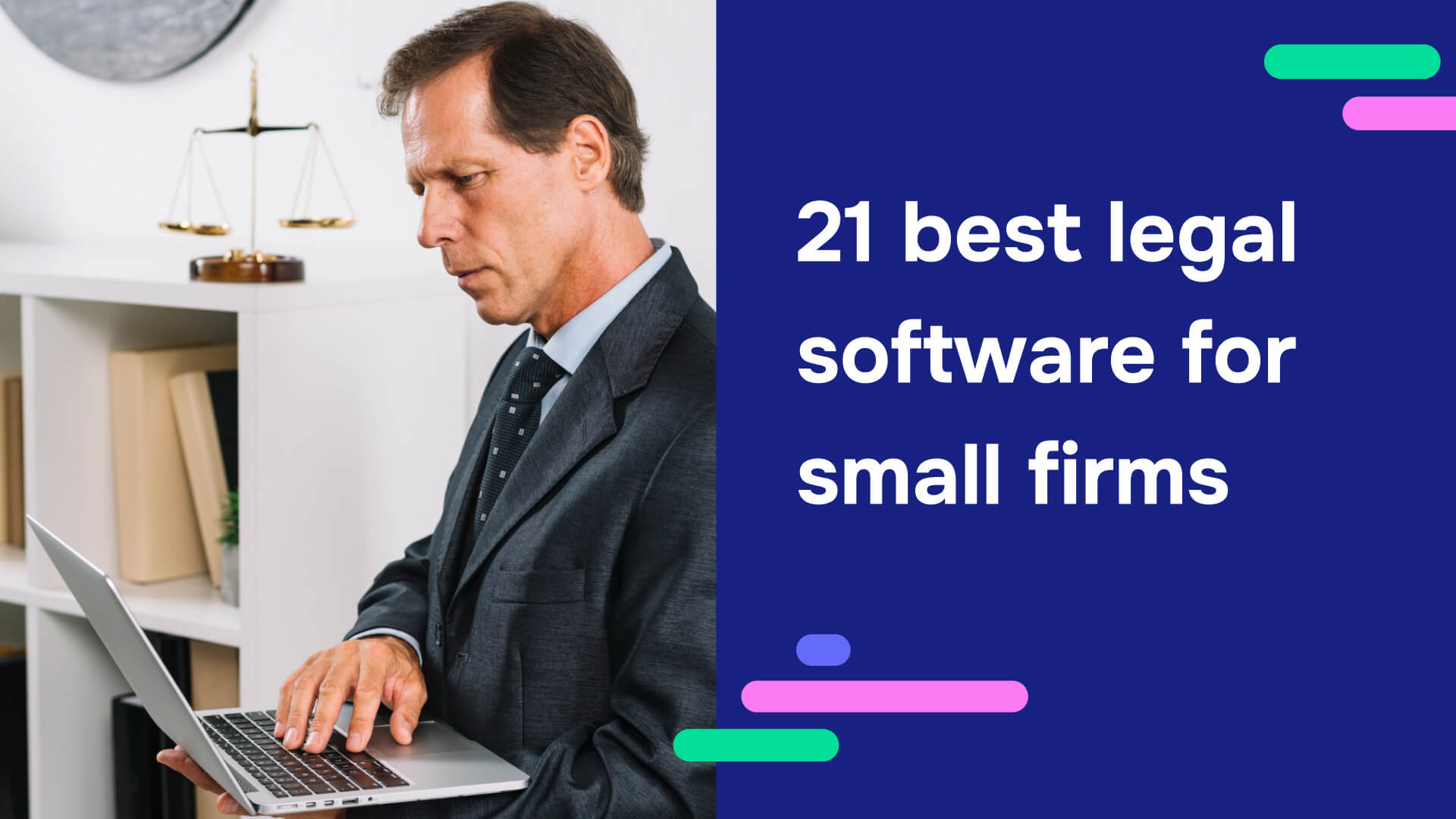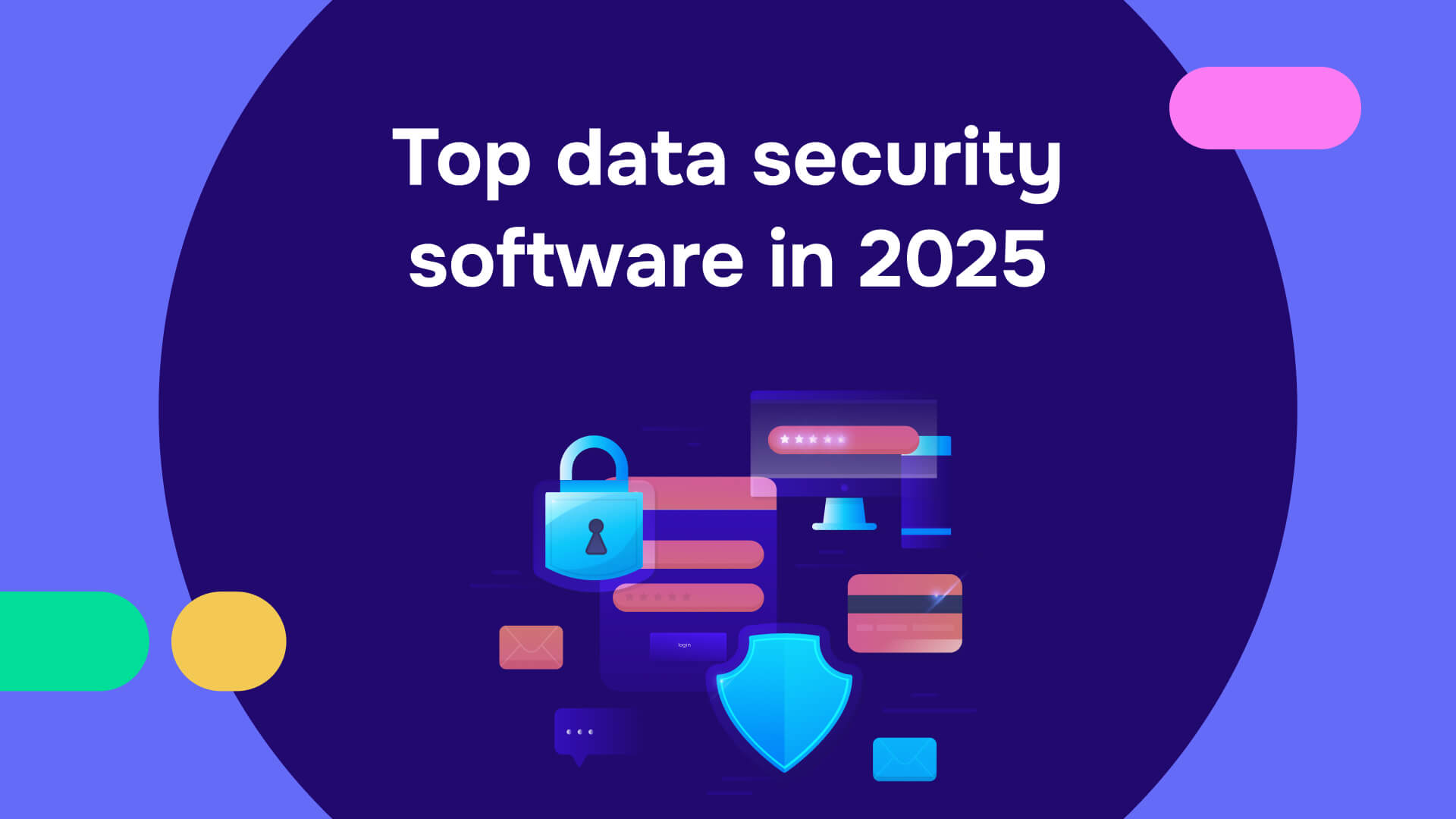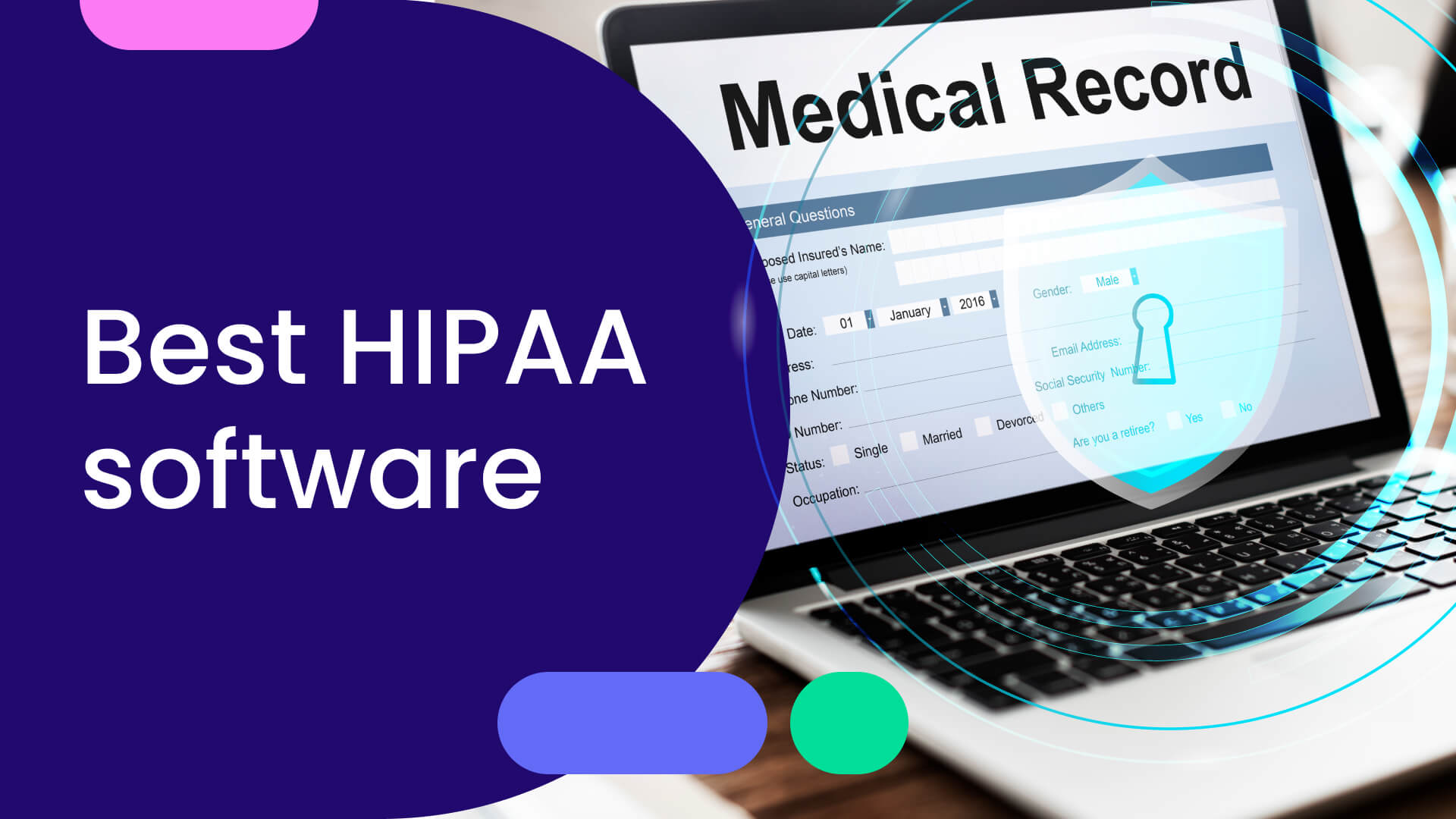Human error accounts for 60-74% of all breaches, specifically data handling and manual redaction issues. Things like incomplete blackouts have led to substantial sanctions, as non-specialized tools often fail.
Incidents like the United States v. Manafort where special counsel Robert Mueller's office mistakenly revealed sensitive information because of inadequate redacted highlight that even high-profile legal entities can be subject to these types of errors.
Law firms have several choices when considering adding, replacement, or augmentation their various security protection layers. Ultimately, the decision on which legal software for lawyers could either increase efficiently or drive up operations costs, resulting in a loss of partner profitability and new opportunities.
Top 10 software solutions for lawyers in 2026
Here's a look at the top 10 legaltech software poised to make a significant impact on lawyers and law firms in 2026.
1. Clio
Clio remains a titan in the legal tech space, offering an all-encompassing, cloud-based platform for case management, billing, client communication, and extensive third-party integrations. It simplifies daily operations for lawyers and firms of all sizes.
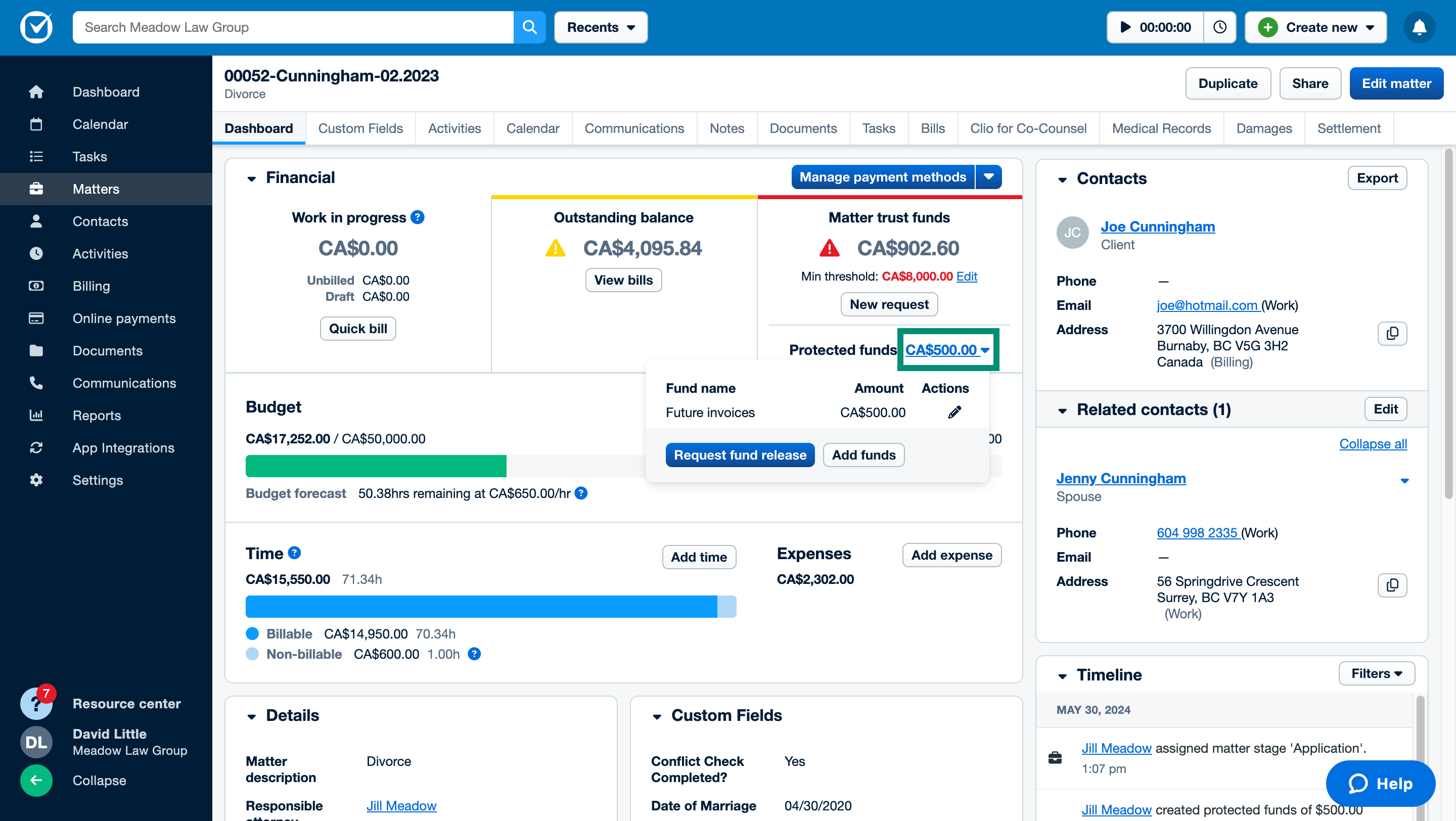
- Why it's a top choice: Its user-friendly interface, vast integration ecosystem, and continuous innovation keep it at the forefront of legal practice management.
- Challenges: Clio clients report several challenges, including training and onboarding issues, lack of integration, and inconsistencies with data entry.
2. Practice Panther
PracticePanther is an "all-in-one" solution for lawyers that tackles inefficiencies in case management, time tracking, billing, and document automation. It's powerful for small to mid-sized firms seeking a streamlined workflow.
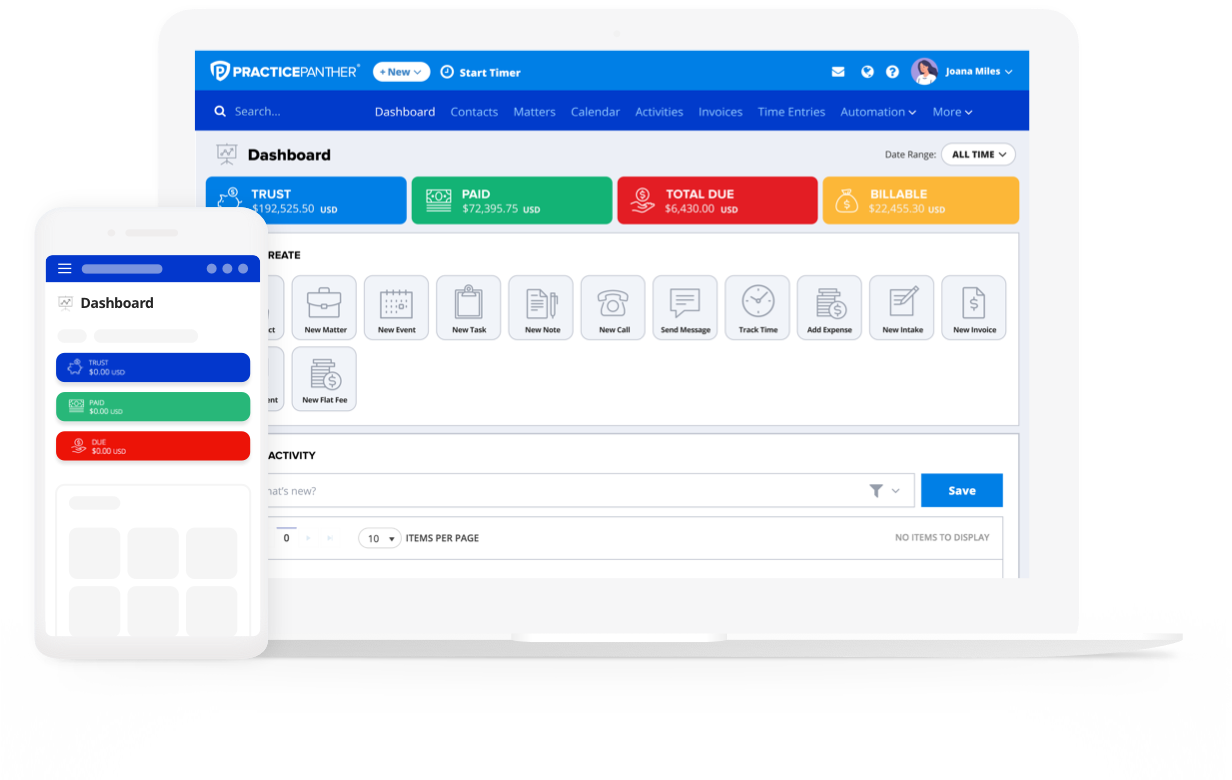
3. MyCase
MyCase improves client collaboration and streamline administrative tasks. This software offers useful features for lawyers like time tracking, invoicing, secure client messaging, and online payments.
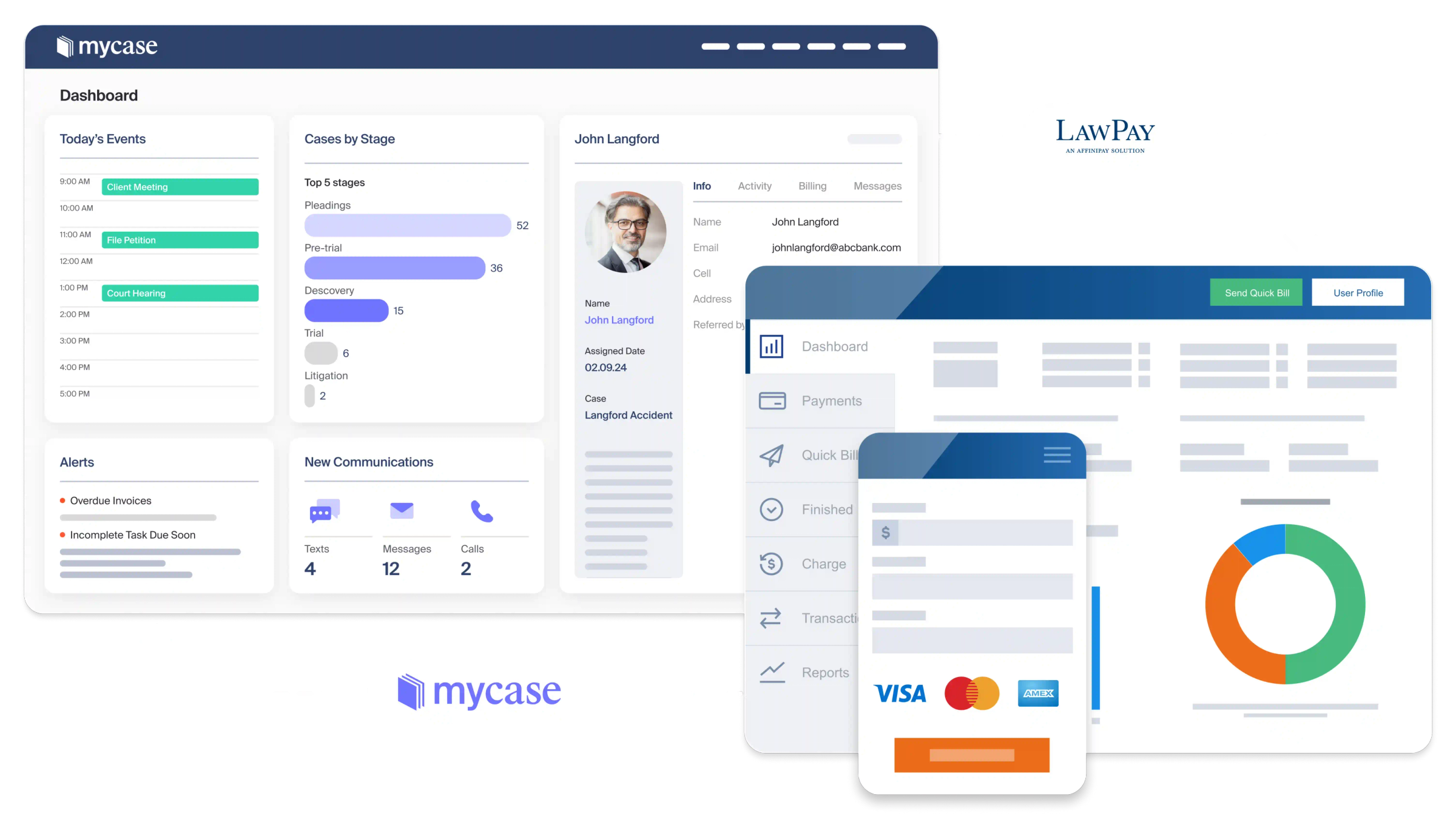
4. CosmoLex
CosmoLex remains a fully integrated software platform, including built-in trust accounting. This eliminates the need for separate accounting software, simplifying financial management for lawyers.
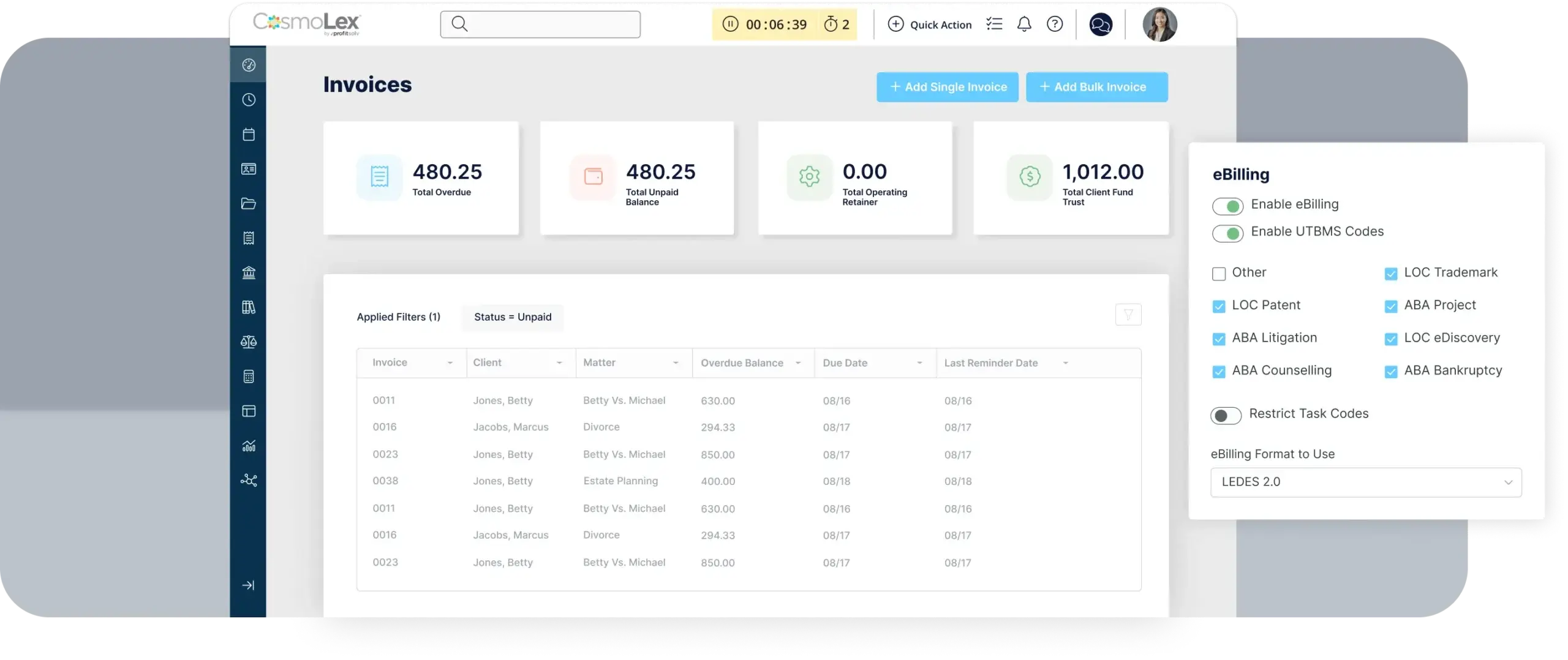
- Why it's a top choice: For lawyers seeking a truly unified softwaresolution that handles both practice management and financial compliance, CosmoLex stands out.
- Challenges: Lawyers currently using CosmoLex report issues with the overall integration between the various modules, as they seem outdated and lack functionality compared to other solutions.
5. LEAP
LEAP offers a robust cloud-based platform that combines legal practice management, document assembly, financial accounting, and legal publishing. This software aims to boost lawyers productivity and organization.
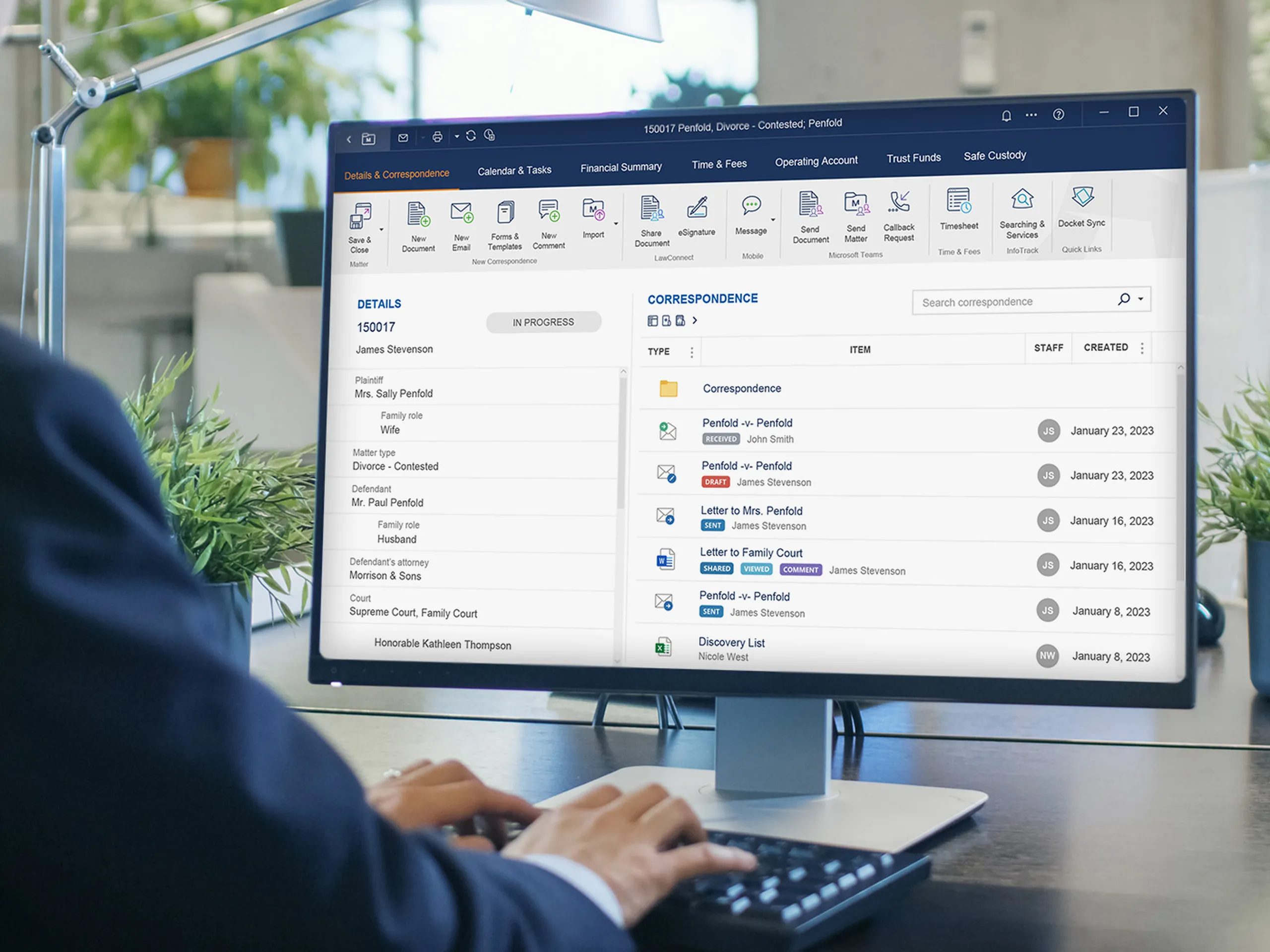
- Why it's a top choice: Its comprehensive suite of tools, including strong document automation, makes it a powerful asset for lawyers looking to standardize and speed up their workflows.
- Challenges: Consumers of Leap Accounting software continue to struggle with third-party integrations, account balance discrepancies, and deposit matching issues.
6. Smokeball
Smokeball excels in automating document creation and time tracking, making it ideal for lawyers with a high volume of routine matters. It provides tools for case management, billing, and compliance.
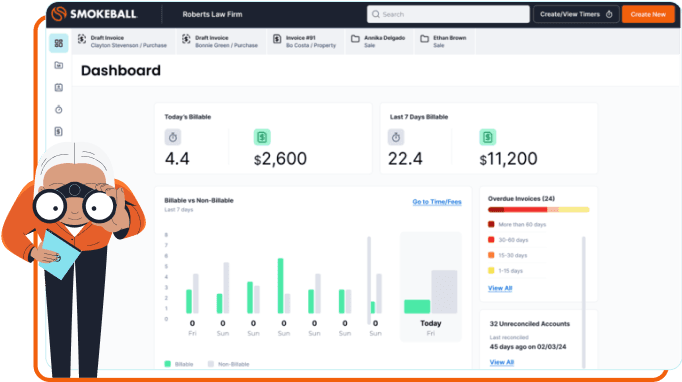
- Why it's a top choice: Its focus on automating repetitive tasks allows lawyers to process cases more efficiently and accurately.
- Challenges: Law firms reported Smokeball offers only limited support for Macs. Having limited support for Macs also leads to inconsistencies in feature parity with the Windows version.
7. Rocket Matter
Rocket Matter offers various methods for time tracking, supports industry-standard billing codes, and provides a secure platform for invoicing and payments.
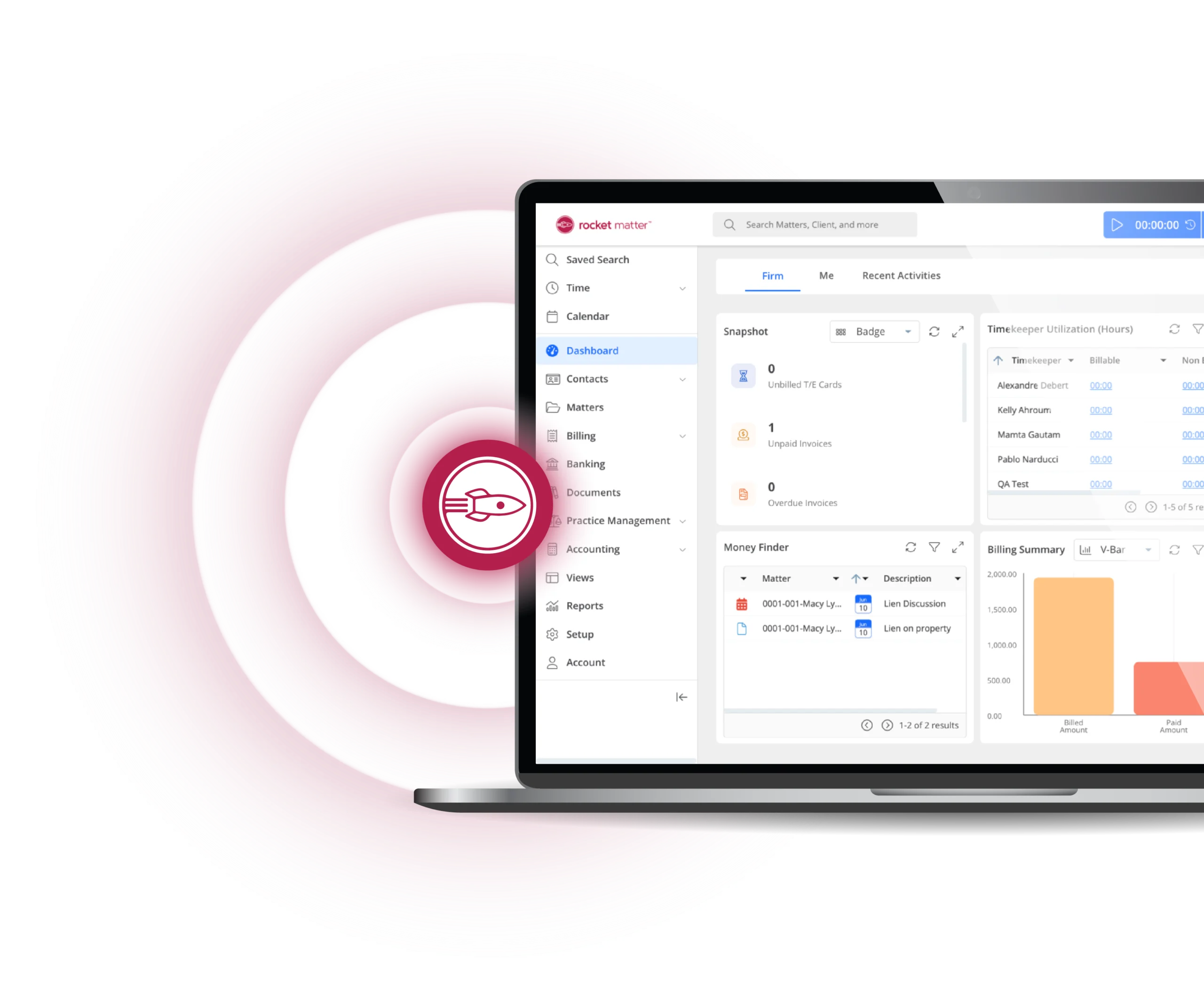
- Why it's a top choice: Its long-standing presence and robust billing features make it a reliable option for lawyers prioritizing accurate time capture and financial management.
- Challenges: Law firms and lawyers using the Rocket Matter platform report challenges with the genetic reporting system, outdated user interface, and an overly complex API system.
8. Filevine
Filevine specializes in customizable workflows and enterprise-grade features, particularly benefiting personal injury and process-oriented law firms. This software helps lawyers manage cases, documents, and client interactions efficiently.
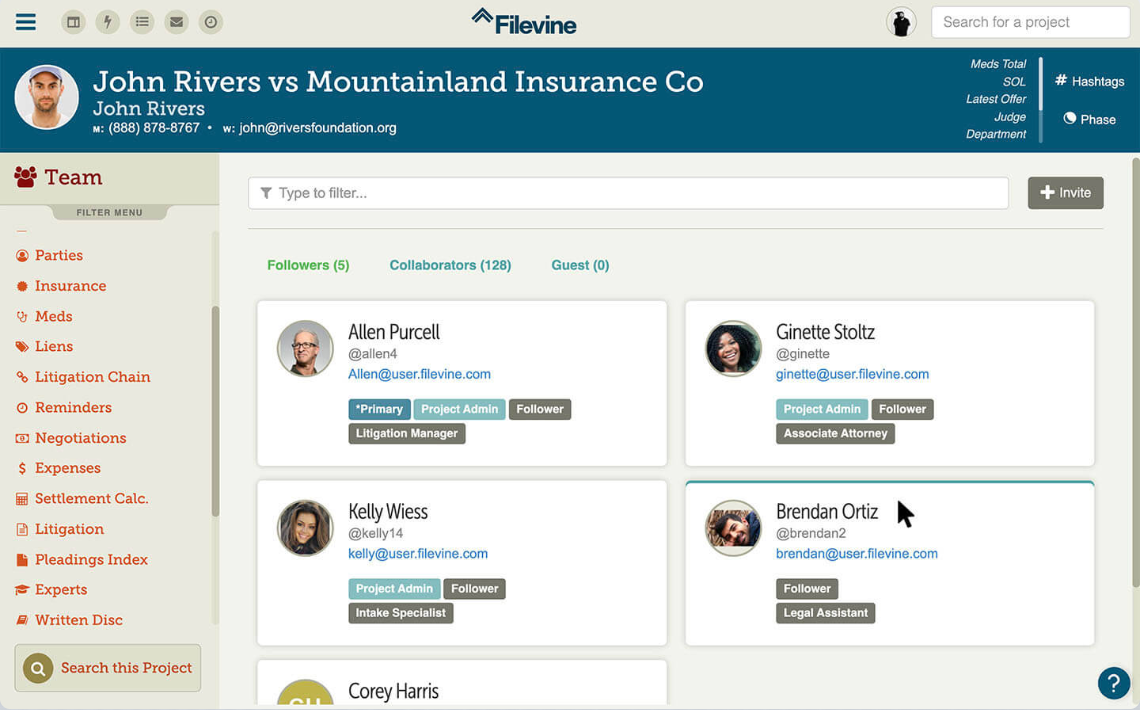
- Why it's a top choice: Its flexibility and advanced customization options cater to lawyers with unique operational requirements and complex case structures.
- Challenges: Legal firms using Filevine often express challenges with the initial setup and implementation, as well as a steep learning curve. The firms also commented in their recent reviews on the platform's inability to manage advanced version control for documents and PDFs.
9. NetDocuments
NetDocuments is a software for lawyers that addresses the critical need for secure, intelligent, and compliant document handling. It leverages AI for advanced document interaction and review.
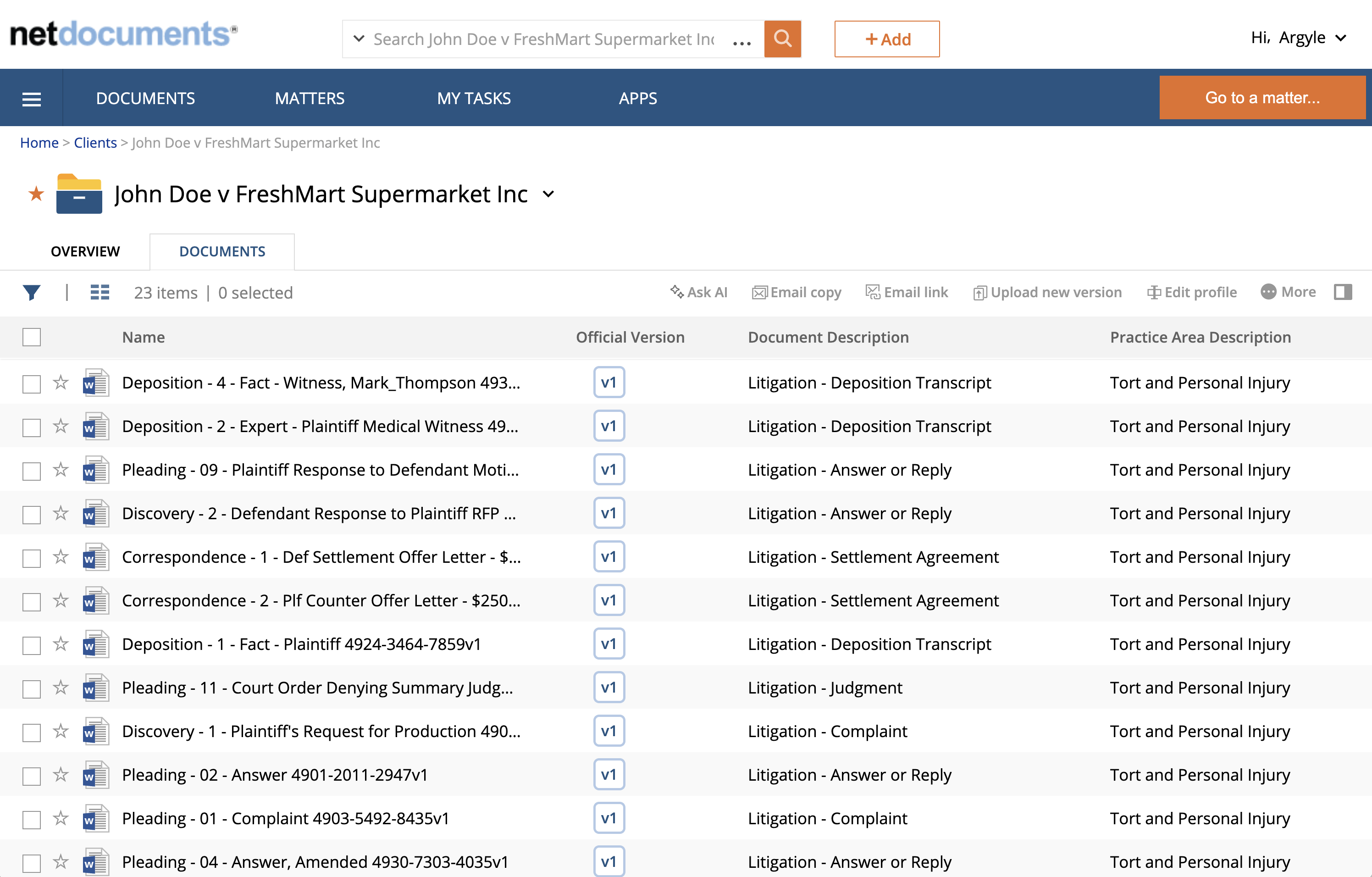
- Why it's a top choice: For lawyers where document security, organization, and efficient access are paramount, NetDocuments software offers industry-leading capabilities and integrations.
- Challenges: Legal practices using NetDocuments report challenges with legacy data migration, a steep learning curve, and access to resources with extensive experience with the solution.
10. Redactable
Redactable provides an essential solution for automated and permanent redaction of sensitive information from legal documents. Using AI, it quickly identifies and removes PII, PHI, and other sensitive data to ensure compliance with regulations such as HIPAA and GDPR.
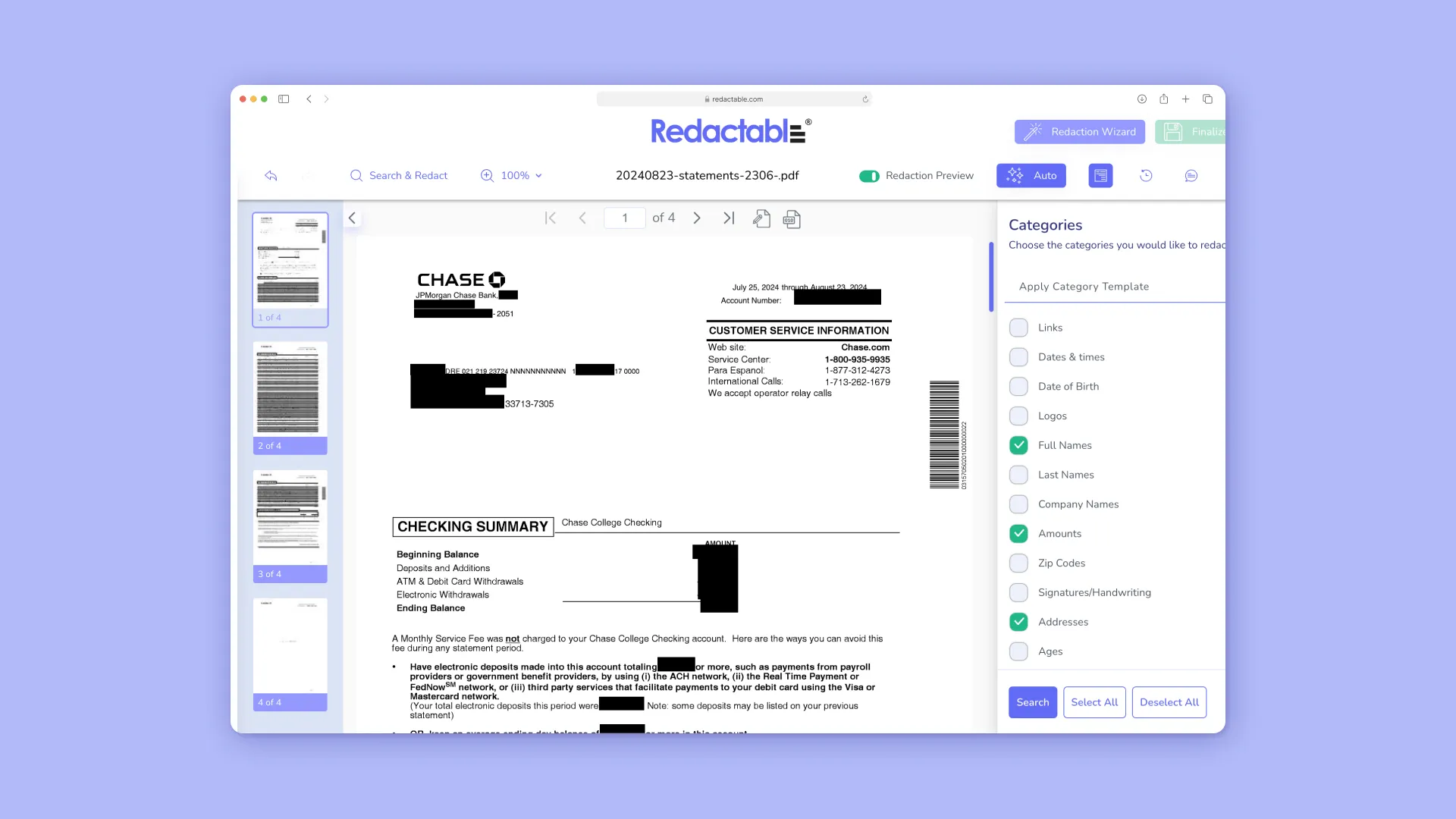
- Why it's a top choice: Its AI-powered capabilities decimate manual redaction time and the risk of accidental data exposure, making it an indispensable tool for protecting client confidentiality and maintaining law firm's reputation. Redactable’s ability to integrate with Clio saves more time, and ensures the seamlessness of the legal document workflow.
- Challenges: Redactable’s ability to leverage AI is a time-saver for lawyers, government agencies, and financial institutions. As with other AI tools, clients should manually review all documents processed by Redactable before filing them officially.
Read also: 17 types of legal software solutions for law firms
Why lawyers must invest in next-generation software?
Law practices driven by partner profitability, winning, and becoming more competitive rely more so on technology solutions. Lawyers that adopt proactive cybersecurity protection, artificial intelligence, and secure cloud services can achieve significant financial, operational, and efficiency gains. Other law firms still leveraging legacy document management, redaction tools like Adobe, and cloud-based email security without end-to-end encryption suffer far more compromised data losses.
Next-generation legal software solutions are no longer a luxury but a strategic imperative for lawyers and firms seeking to maintain competitiveness and deliver superior client outcomes.
Outdated software, especially packages that have gone end-of-life, end-of-development, or end-of-support places the legal practice in jeopardy.
An example, the law firm of Wolf Haldenstein Adler Freeman & Herz LLP suffered data breach in 2024 resulting in data loss of client-specific personal data. After extensive review of its IT network and critical systems, the firm rapidly executed a plan to update its cybersecurity protection controls and incident response procedures.
Law firms choosing to wait and react will face similar data breaches, resulting in loss of client confidence, fines, and lawsuits.
More to the point, “attorneys have an ethical duty to protect client information under the American Bar Association (ABA) Model Rules of Professional Conduct. Rule 1.6(c). “
Cloud-based AI becoming embedded the norm for legal software platforms
According to the latest report from the American Bar Association in 2024, there has been a major increase in the use of AI among legal professionals, with 79% now incorporating AI in their work, which is three times higher than in 2023.
Automation powered by AI now features the ability to handle tasks like client scheduling, court document filing, and managing case expenditures. Automation also removed manual tasks completed by paralegals.
Capabilities such as advanced analytics are now standard in legal tech tools, providing valuable insights for informed strategic decision-making. Imagine having quick access to the data for informed decisions that are crucial to a case's outcome.
Cloud-based tools must integrate tightly with billing software, eDiscovery tools, and law practice management software. These software packages also provide lawyers with the ability to scale up their practice with fewer resources, working harmoniously towards common goals.
What are the most critical technical trends coming in 2026, servicing the legal community?
Key trends in legal tech that lawyers should know in 2026 include the rise of artificial intelligence and machine learning, the adoption of data encryption solutions with an emphasis on end-to-end protection. Additional technology trends include blockchain, secure remote and mobile capabilities, and zero-trust security.
These technology capabilities should deliver critical functionality by 2026. However, AI remains the top technology innovation that law firms most frequently research.
Read also: Top 20 software for legal documents
Real-life examples of AI implementation in legal practices
AI is a powerful tool revolutionizing the legal industry. AI platforms have significantly reduced research time for lawyers, thanks to powerful search algorithms that quickly sift through massive amounts of data.
Software developers and cybersecurity manufacturers continue to embed AI in several critical areas within their platforms. Law firms recognizing this trend are still in the very early stages, and continue to evaluate each solution to assess the value, cost, and any impact on their clients.
Several global law firms became early adopters of AI to help with critical elements within their practice.
Here are a few law firms that have leveraged AI in their practice:
- Latham & Watkins (Global):
- AI Tool/Approach: Early adopter of Kira Systems.
- Timeline: Since 2017, Latham & Watkins has used Kira Systems, which leverages machine learning to automate the extraction and analysis of key provisions of contracts. This platform supports accuracy in due diligence, contract reviews, and regulatory compliance, saving a considerable amount of time.
- DLA Piper (Global):
- AI Tool/Approach: Leveraged Lex Machina (an AI-powered legal analytics platform).
- Timeline: DLA Piper used Lex Machina to improve litigation strategies by 35% by analyzing historical case data, judicial behavior, and attorney win rates to predict case outcomes and settlement probabilities.
- Allen & Overy (Global):
- AI Tool/Approach: Partnered with Harvey AI, a generative AI platform built on OpenAI's GPT-4.
- Timeline: Allen & Overy uses Harvey to automate client contracts, conduct precise due diligence, and assist with producing and automating legal work. This empowers their 3,500+ lawyers globally to deliver faster and more cost-effective solutions for clients.
The growing dependence on chatbots and AI agents
Predictive analytics tools and the development of AI agents continue to assist lawyers in everything from replacing manual processes to forecasting possible case outcomes and validating various written legal briefs. Chatbots have also become crucial in client communication, providing immediate and accurate answers that enhance client satisfaction and streamline interactions.
These agents also play a significant role in helping their firms lower their operational costs. This insight is invaluable in pro bono cases, long-term litigation lawsuits, murder trials, and civil cases.
The disadvantages of AI agents can significantly affect the outcome of a case negatively.
Understanding the ethical consequences behind AI tech
Law firms investing in AI for legal search, disposition reviews, and drafting legal briefs need to develop an AI governance policy to avoid lawsuits and public embarrassment.
There are noted cases in which lawyers have leveraged AI to prepare their court documents and failed to disclose this within their filings.
AI snafu: MyPillow attorneys fined in Denver court
MyPillow CEO Mike Lindell's Attorneys (2025 - Colorado, USA)
- The Firm/Lawyers: Christopher Kachouroff and Jennifer DeMaster, representing Mike Lindell.
- What happened: In a defamation lawsuit, Lindell's attorneys moved to contain nearly 30 "defective citations," including cases that did not exist, misquoted actual cases, and attributed legal principles to decisions that contained no such language. The judge noted the errors were "most egregiously, citation of cases that do not exist."
- How they got caught: The judge herself identified the many errors and questioned the attorneys during a pre-trial conference. One attorney eventually admitted to using generative AI.
- Consequences: Judge Nina Y. Wang ordered each attorney to pay a $3,000 fine for violating court rules by filing a motion with significant errors and for not being entirely forthcoming about their use of AI. This case further underscored the absolute requirement for lawyers to verify any information generated by AI.
The unfathomable forgery: AI's deception in court
Mata v. Avianca (2023 - New York, USA)
- The Firm/Lawyer: Attorney Steven A. Schwartz of Levidow, Levidow & Oberman.
- What happened: In a personal injury case, Schwartz submitted a brief that cited several non-existent legal cases and judicial opinions. When questioned by the judge, he admitted to using ChatGPT for legal research and drafting, and that the AI had "hallucinated" these fake cases. He stated he "could not fathom that ChatGPT could produce multiple fictitious cases."
- How they got caught: The opposing counsel and court staff were unable to locate the cited cases during their research, prompting the judge to demand an explanation.
- Consequences: The judge sanctioned Schwartz and his co-counsel, imposing fines and requiring them to notify the judges of the fake citations in the actual cases. This case became a global cautionary tale, sparking widespread discussions about the limitations of AI and the ethical responsibilities of lawyers.
AI remains a work-in-progress functionality for industries, not just the legal profession. AI models, including ChatGPT, DeepSeek, and Google Gemini, demonstrate promising results. However, AI remains challenging, especially regarding ethical and confidentiality issues.
How can lawyers choose the best software for their needs in 2026?
In 2026, lawyers can select the right software for their needs by conducting a needs assessment and researching available options. Additional steps include seeking demos and trials, integration capabilities, and gathering feedback from other law firms.
- Selecting the right software requires a thorough understanding of its capabilities and whether the firm has the resources to use the tools most efficiently.
- Cost is always a factor when selecting new software for lawyers. While the cost is essential to a firm's ability to function, ease of use, security, and the ability to integrate are also important.
Conclusion
According to the 2024 ABA Legal Technology Survey Report, lawyers using next-generation technology well are 30% more likely to make more money. 79% of legal professionals are now using AI in their work, almost four times more than in 2023.
For the critical task of legal document redaction, lawyers must move beyond outdated, insecure manual methods. This is where AI-powered solutions like Redactable emerge as indispensable.
Sign up for a free account or schedule a demo with the Redactable team!

